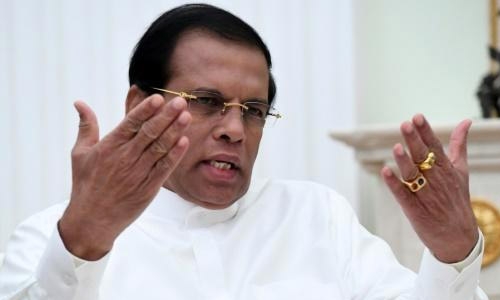Sri Lanka offers fresh probes into missing thousands
Colombo : Sri Lanka's President announced Saturday new investigations into alleged secret detention centres as part of a drive to find tens of thousands of people still missing after the country's decades-long war.
Maithripala Sirisena said he would establish a mechanism to search locations where there are reports that people may still be incarcerated after the war, which ended in May 2009.
"If there are allegations that people are still being held in some locations, the government will set up a mechanism to inspect them," Sirisena told a rally in the former war zone of Sampur in the country's northeast.
Multiple official committees have examined the issue of missing people, and recommended actions including reparations and criminal investigations into some high profile cases.
Authorities have so far been slow to act, but Sirisena promised he would now implement these recommendations.
The International Red Cross urged the government last year to disclose the fate of the more than 16,000 people still officially missing after the island's ethnic war ended eight years ago.
Government forces crushed Tamil rebels fighting for a separate homeland for the ethnic minority, in a brutal offensive that ended 37 years of fighting. Some 40,000 people are thought to have been killed in the final few months of the conflict alone.
Huge numbers of Tamils disappeared during the war including after being arrested by security services, while thousands more died in military bombardments.
Thousands of people also went missing during a crackdown by security forces and pro-government vigilante groups on Marxist rebels between 1987 and 1990.
The ICRC had said that it registered 16,000 people as missing since setting up a presence in SriLanka in 1989. The database also includes more than 5,100 security personnel listed as missing.
Sirisena, a member of the majority Sinhalese community, has taken steps to reconcile with the minority Tamil community since coming to power in January 2015, but international rights groups say the pace of delivery has been too slow.
However, the government announced a landmark law last year to recognise those still missing as dead, allowing relatives to claim inheritances.
Related Posts

